By Dr. Alexandr Nemets
Conventional wisdom has it that China’s expanding military capabilities, and Beijing’s growing regional ambitions, will one day soon pose a challenge to the United States in Asia. Likewise, Russia under Vladimir Putin has shed any ambiguity about its post-Cold War direction, become increasingly assertive, powerful and anti-American.
Yet perhaps the greatest threat to U.S. interests and objectives in the years ahead will not come from Beijing or Moscow alone, but from the ominous alliance that is emerging between the two. It is a partnership that holds the power to reconfigure the balance of power in Europe, Asia and beyond—much to the detriment of the United States and American interests in those regions.
Genesis
Contemporary Sino-Russian relations can be traced back to September 1984, when the Soviet Union’s newly-appointed deputy premier, Ivan Arkhipov, visited Beijing to meet his Chinese counterpart, Li Peng. Though no agreements were reached at the time, both leaders committed unequivocally to a major upgrade of the bilateral relationship, thereby kicking off a multi-year revival of the thriving partnership that had existed between the two countries before 1960.
Additional overtures soon followed. Mikhail Gorbachev assumed power in the Soviet Union in March 1985, and the improvement of relations with China became one of his top foreign policy priorities. The results were dramatic; just three months later, in June 1985, during a visit by Li Peng to Moscow, the USSR and China signed a major pact on economic-technological cooperation—the first such agreement in a quarter-century. That deal paved the way for Soviet assistance in the modernization of China’s aging industrial sector, as well as a rapid expansion of Sino-Russian trade and extensive academic exchanges that led to a boom in science and technology collaboration.
Subsequently, in late May 1989, Gorbachev, as General Secretary of the Communist Party of the Soviet Union (and the newly elected president of the USSR), visited China and met Deng Xiaoping, Li Peng and other Chinese leaders. The visit was hailed worldwide as the final normalization of Chinese-Soviet ties after three decades of hostility. In practical terms, this visit created an environment for even greater cooperation. This expansion was not marred in the least by China’s brutal suppression of student protests in Tiananmen just weeks later. To the contrary, Soviet leaders recognized the new opportunities emerging from the resulting constriction of Chinese ties with the West.
By the time the Soviet Union began to crumble in 1991, contacts between Moscow and Beijing had become steady and robust, encompassing vibrant science and technology collaboration, ballooning bilateral trade and a thriving trade in high-tech Soviet arms (as Soviet defense firms, facing imminent prospects of cutbacks in military orders inside Russia, began to look to a new prospective customer: the PRC).1
The first half of 1991 saw growing chaos among the Soviet republics, and in Russia itself. But between Russia and China, the same period saw a rapid growth in strategic cooperation. Most notably, the Moscow visit of Jiang Zemin, General Secretary of the Chinese Communist Party, in May 1991 yielded a new border agreement that transferred to China hundreds of small islands in the Amur, Argun, and Ussuri rivers, and granting Chinese ships greater docking privileges at Russian ports.2
A Shifting Balance
Jiang’s visit showcased an important development. The balance of power between the USSR and China—previously squarely in Moscow’s favor—had begun to shift significantly toward the latter. The Soviet Union and China were now equal partners in their strategic relationship. Moreover, China was actually becoming stronger in some (primarily economic) areas, though it still lagged behind the USSR in military technology.
By the end of 1991, the Soviet Union had ceased to exist and Russia became an independent country. The fledgling Russian government initiated radical economic reform, which resulted in great economic and political chaos and hyperinflation. By contrast, in January 1992, China’s “paramount leader,” Deng Xiaoping, proclaimed a “new stage of economic reform,” which brought with it an annual rise of fourteen percent in China’s GDP.
Yet, although the trends in the two countries were diametrically opposite, this state of affairs actually facilitated further cooperation. The new Russian leadership was desperately looking for economic partners to replace broken ties with Eastern Europe and the former Soviet republics, while China had become interested as never before in Russian raw materials and Russian markets for “thrifty” Chinese consumer goods. The mutual interests of the Russian defense industry and the PLA and Chinese defense industry were also on the rise.3
At the end of 1992, following a visit by new Russian president Boris Yeltsin to China, Sino-Russian relations reached a qualitatively new level with the signing of twenty important framework agreements—more than half dealing with cooperation between the People’s Liberation Army and the Russian armed forces, Chinese-Russian military-technological cooperation and related spheres. The deals paved the way for a subsequent, multi-billion-dollar, five-year agreement on military exchanges and defense technology cooperation, one which would provide a major boost to China’s military modernization during the mid-1990s. The writing was on the wall; Russia’s top leaders had chosen a geopolitical partner, and despite Moscow’s overtures toward Washington and European capitals, their choice was clearly Beijing.4
Expansion and Solidification
The ascendance of Yevgeny Primakov to the post of Foreign Minister in 1996 provided new momentum to the unfolding Sino-Russian strategic partnership. That year, overt Russian weapons and arms technology deliveries surpassed $1 billion. And arms trade was not the only sign of progress; in the wake of a November 1996 visit by Primakov to Beijing, Russia and the PRC also enhanced their political coordination on a number of fronts—most notably, opposition to American plans for the deployment of ballistic missile defenses.
This warmth facilitated a major change in military posture on the part of both countries. Based on accords signed with Beijing in April 1996, Moscow launched a major troop redeployment, moving forces away from the 2,500-mile border shared with China to the Moscow and Leningrad military regions, close to NATO borders. China, for its part, shifted its best troops—at least 200,000 soldiers and a substantial amount of heavy weaponry—from the Russian and Kazakh borders (the Shenyang, Beijing and Lanzhou major military regions) to the Taiwan Strait and the South China Sea coast.
A new “Great Leap Forward” in Chinese-Russian ties was at hand, driven largely by Russian fears of Western encroachment. The geopolitical agenda of Alexei Arbatov, the influential chairman of the Russian Duma’s Military Commission, was published by the Russian press at the very beginning of 1997. In it, Arbatov made clear that, if NATO continued its eastward expansion, Russia would have to do the same.5 In short, Russia would form an alliance with China, as well as with Iran and India. This was, in effect, an ultimatum from Russia’s political elite to America and the West.
Arbatov’s manifesto was echoed in Beijing. At their April 1997 summit, presidents Boris Yeltsin and Jiang Zemin issued a joint statement on “Multi-polarization of the World and Establishment of a New International Order,” a document articulating the opposition of both countries to a world dominated by the United States and its allies. At the same time, Jiang was making new inroads in Central Asia. Over the span of several months in 1997, the Chinese president met with the presidents of Kazakhstan, Tajikistan and Kyrgyzstan. These meetings resulted in a dramatic reduction of Chinese, Russian and Kazakh troops based near the former Chinese-Soviet border.
Moscow and Beijing also drew closer on regional security matters. By mid-1997, China and Russia, along with several of the former Soviet republics, had formed something akin to a unified “defense perimeter”—one encompassing Russia, China, Belarus, Kazakhstan, Kyrgyzstan and Tajikistan—and had begun redeploying troops along that new border. As a result of the arrangement, Russia received additional military forces with which to oppose the U.S. and Europe, while China solidified its military potential for a possible conflict over Taiwan.
Progress was palpable on another front as well. A Chinese-Russian summit in Beijing in November of 1997 by and large resolved a long-standing border dispute over three large islands in the Amur and Argun rivers. Even more importantly, Jiang and Yeltsin signed the Sino-Russian Border Demarcation Treaty, which affirmed the border pact signed by Jiang and Gorbachev in May 1991. The Chinese and Russian media stressed after the summit that the two nations henceforth had “no unresolved problems, no differences in foreign policy goals.” Russia and China were “pursuing the same ultimate goal: the creation of a multi-polar world, with the diminished influence of the U.S.”6
Economic realities were also working in the alliance’s favor. In August 1998, the Russian government officially announced that it was bankrupt. This economic failure undermined Russian belief in a market economy, and the last friendly ties to the West unraveled. Yeltsin began expanding the political power wielded by Primakov, a tried-and-true friend of China, and the latter wasted no time in looking east for assistance. In late August of that year, China broke the de facto “financial blockade” of Russia that had emerged, providing Moscow with $540 million in financial aid. The move was greatly appreciated in the Kremlin.
International events, meanwhile, seemed to confirm the prudence of partnership. In December 1998, the United States and England launched Operation Desert Fox in Iraq—a move that generated angry protests from both Moscow and Beijing, and provided new impetus to Chinese and Russian discussions about the establishment of a joint air-defense network. During the same period, Primakov also proposed the idea of a Russian-Chinese-Indian strategic triangle aimed against the West.7 The subsequent outbreak of hostilities in Kosovo in May 1999 only served to accelerate these trends.
In the midst of this burgeoning partnership, a new era dawned in Moscow with the elevation of Vladimir Putin to the post of Prime Minister in August 1999. But the corresponding transfer of power from Yeltsin’s corrupt “family” to the Putin regime—based primarily on FSB/KGB structures—did nothing to dampen the intensity of Sino-Russian cooperation. Indeed, between August 1999 and July 2001, strategic cooperation between Moscow and Beijing ballooned, as exemplified by a new accord on weapons and technology transfer worth at least $2 billion, and by the initiation of joint military maneuvers between the Russian armed forces and the People’s Liberation Army. During their first meeting in Dushanbe, Tajikistan on July 5-6, 2000, Putin promised Jiang Zemin that in the case of a conflict over Taiwan, “the Russian Pacific Fleet will block the path of U.S. naval vessels heading to Taiwan.”8
Increasingly, Moscow and Beijing were also making regional plans. The summer of 2001 saw the formal expansion of the “Shanghai Five” with the addition of Uzbekistan. The resulting grouping—encompassing China, Russia, Kazakhstan, Kyrgyzstan, Tajikistan and Uzbekistan—has emerged as Eurasia’s premier post-Soviet security bloc, with both defensive and far-reaching offensive capabilities. Officially, the major function of the Shanghai Cooperation Organization (SCO) was the struggle against “the ‘three forces’ of separatism, terrorism and extremism.”9 In reality, however, Moscow and Beijing have harnessed the SCO as a geopolitical instrument to restrain the Western penetration into the Caspian region and all of Central Asia.
New Horizons
Today, the Sino-Russian relationship continues to be animated by a number of factors. For China, these include maximizing influence over Taiwan and neutralizing U.S. influence there, as well as rolling back America’s presence on the Korean peninsula, in the South China Sea, and throughout Southeast Asia. Policymakers in Beijing, cognizant of their country’s growing energy needs, are also deeply interested in greater access to the hydrocarbon resources of Central Asia and the Middle East.
Russia, meanwhile, is intent on expanding influence in the “post-Soviet space,” as well as complicating Washington’s freedom of movement in its Near Abroad and in the Middle East. Officials in Moscow also fear that, unless confronted, America’s regional presence in the “post-Soviet space” could lead to a final disintegration of the Commonwealth of Independent States (CIS) and the “peaceful transformation” of Russia through “democratic reconstructions” and “color revolutions.”10 These efforts have met with considerable success, with Moscow contributing to Washington’s forced strategic retreat from Uzbekistan (and quite possibly Kyrgyzstan in the near future). On the surface, American-Russian relations may still be quiet, but a fierce struggle is taking place underneath.
These objectives are complementary, and synergistic. It is therefore not surprising that bilateral ties between Moscow and Beijing are on the upswing. China and Russia are sparing no efforts to build a “multi-polar world” in which the power of the United States is diminished.
In the future, these efforts are likely to take several concrete forms. For China, the first priority will be to ensure an electoral victory for the opposition Kuomintang party in Taiwan in March 2008, a move that Chinese policymakers believe—with some justification—will pave the way for a formal agreement between Beijing and Taipei on Taiwan’s eventual reunification with Mainland China. The end goal is the ambitious concept of a “Greater China” encompassing the Mainland, a politically and economically integrated Taiwan, and Hong Kong. A secondary goal is the withdrawal of American troops from South Korea and the unification of the peninsula under a de facto Beijing protectorate. PRC policymakers are also keen to establish direct control over most of the South China Sea, thereby cementing China’s dominion in the region, as well as exerting greater pressure on regional rival Japan.
Russia, meanwhile, is intent upon establishing an “independent” (read anti-American) foreign policy in the greater Middle East—an objective that includes, in no small measure, the provision of assistance to the Iranian regime in its efforts at military modernization, as well as tacit support for Tehran’s nuclear ambitions. The latter makes good strategic sense for Moscow; since the Islamic Republic is a major nuclear client, Iran’s nuclearization would be a boon to Russia’s nuclear industry, providing a showcase for Russian nuclear expertise to other aspiring atomic states. Russia will also remain intent on reasserting hegemony in the “post-Soviet space,” and is likely to increase its efforts to influence—and destabilize—the fragile political systems of Ukraine, Georgia, and the Central Asian states. All of this sits well with China, which is interested in restoring Moscow’s dominion over the entire “post-Soviet space” and, consequently, nullifying American influence there.
And Moscow and Beijing are making progress. In March 2006, Presidents Hu Jintao and Vladimir Putin endorsed a new long-term action plan for strategic cooperation between their two countries. This program—which envisions new levels of economic, scientific, cultural and political cooperation between Moscow and Beijing in the years ahead—sets the stage for a further evolution of the Sino-Russian alliance. It is a partnership with which the United States will be grappling for a long time to come.




 Reply With Quote
Reply With Quote







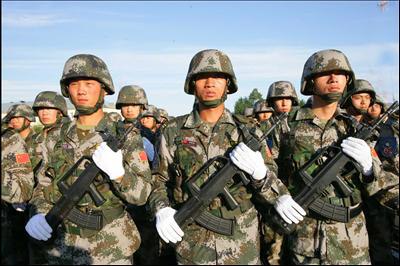
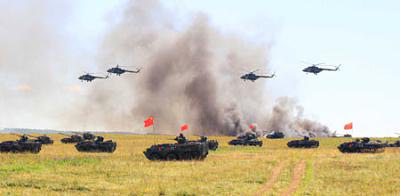
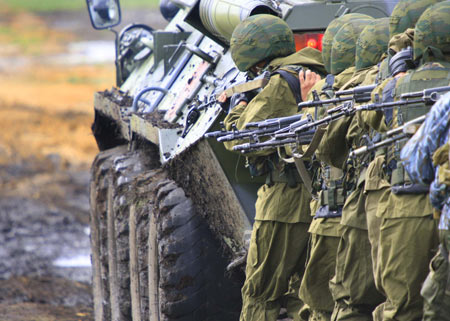
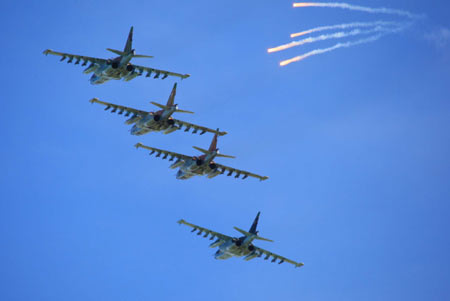

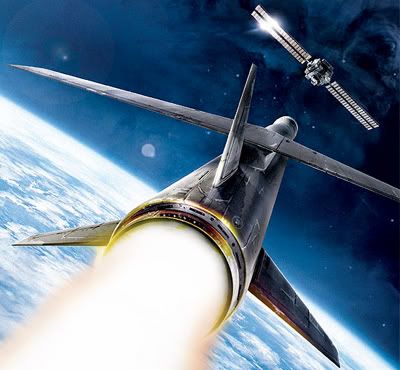




Bookmarks